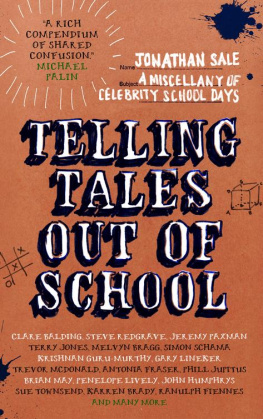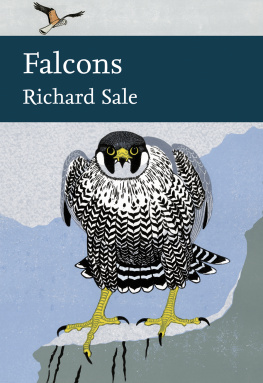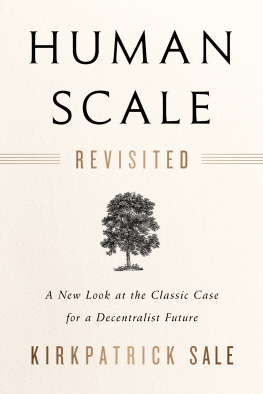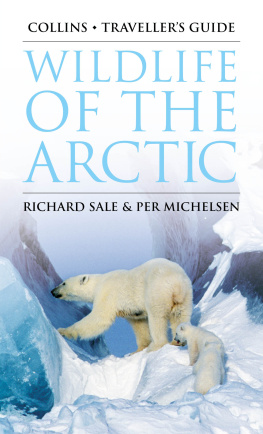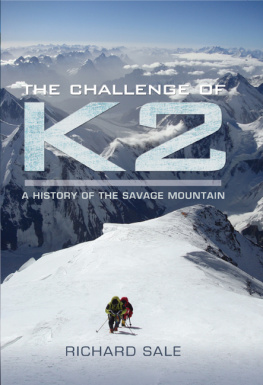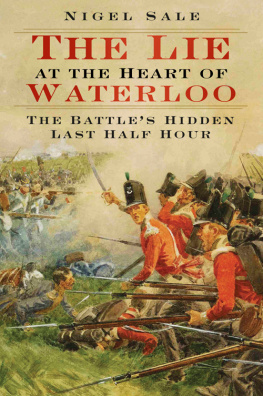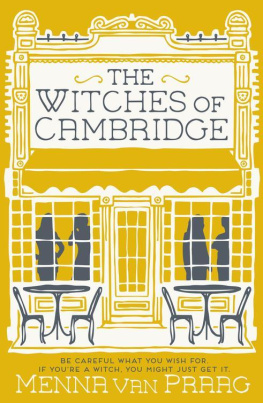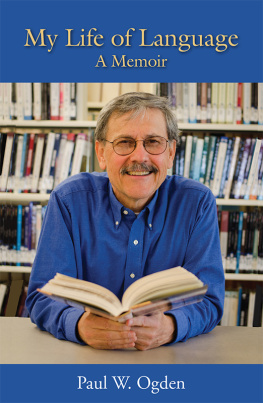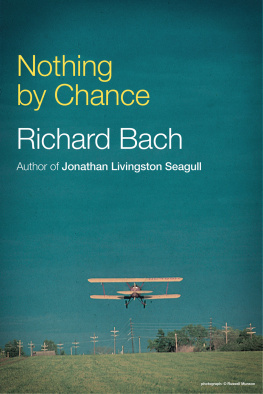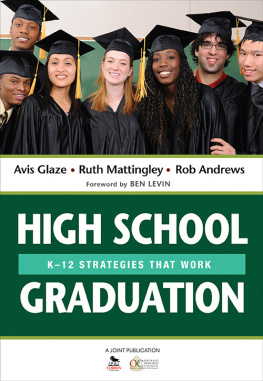Ive increasingly come to the view that schooldays should come at the end, rather than the beginning, of ones life, when we have at least a modicum of the wisdom and experience necessary to deal with so many life-changing decisions. But then maybe wed lose some of the surreal serendipity of schooldays, so vividly recaptured in Telling Tales Out of School. A rich compendium of shared confusion.
This is a delightful and compelling collection of stories about something weve all had to go through. From the very first page it brings back all the pangs and pleasures of school, teased out by the quiet, sympathetic and highly effective professionalism of Jonathan Sale.
The most interesting chapters in any successful persons life are not the ones at the end in the section called Meetings with Important People but the ones at the beginning headed Early Struggles. More interesting still, perhaps, are the even earlier stages of their lives which are remembered in this book, at school and university, before any of them had even the beginnings of an idea how their story would turn out.
O ne of them was told that he just wasnt university material, the other that unless he got O level maths at his sixth attempt he could not take up his exhibition to Cambridge. And thats just two presenters of University Challenge. Bamber Gascoigne pulled up his socks academically and Jeremy Paxman did his stuff mathematically; both show that its possible to have a second chance at school and university.
Good or bad, there is always a moment. (Six moments, in the case of Paxman: getting the right answer was as hard as getting a response from Michael Howard.) Actor Tom Conti had a sudden moment after leaving school that steered his life in a new direction. Walking down a corridor with the intention of enrolling in a music course, he noticed a sign pointing to the drama department. On a whim, he changed direction and his life took a dramatic turn.
Paddy Ashdown had a tough life in the Special Boat Service and an even tougher time as leader of the Lib Dems. Im not saying it was a life-changing moment but his first skirmish, with his over-strict primary school headmistress, deserves celebrating as an indication of how he was shaping up. He locked her in the stationery cupboard and ran away. One to watch, she may have thought, and not in a good way.
How did creative people develop their creativity? Actors, singers, sportsmen and women: who or what lit their fire? Broadcasters, entrepreneurs and scientists: who pulled their strings? Writers, comedians, campaigners, politicians and directors: who turned the key in their ignition?
We may not know it, we may not like it, but our schools are crucial in what we are and what we do. There are primary teachers who encouraged us with gold stars and scary maths teachers who frightened us off figures forever. Even if we are reacting against our teachers, thats still an influence they are having on us.
You take your school life with you all your life, the writer Kate Figes told me. My own school life is still very vivid to me. One of those vivid moments involved, aged twelve, having to defend her mothers new book on feminism from the attacks of her forthright classmates. A tough gig. No wonder she went home in tears. Maybe its not strange that she is a writer herself: Life After Birth and Couples, among other titles.
Over a fifteen-year period I have been engaged in a weekly series of interviews, mainly for The Independent, on memories of school and, where applicable, art school, drama school and university. They are on the whole the kind of people sufficiently well known to appear on Desert Island Discs, with whole lives and careers sufficiently interesting to talk about.
My aim in this book was to avoid the use of the word celebrity (that didnt last very long, did it?) on the grounds that it seems the wrong term for people like Doreen Lawrence, who is a public figure because of the admirable way in which she has created the Stephen Lawrence Charitable Trust to conjure something positive from the worst event that can happen to a mother. On the other hand, it is not a crime to be a celebrity and the word describes most of the people in the book. The word interesting, however, describes them all. Being a boring celebrity, I hope youll agree, should certainly be a criminal offence.
Among those who let me make withdrawals from their memory banks were Meera Syal, Rory McGrath, John Simpson, Gina Yashere, Konnie Huq, Gary Lineker, the Astronomer Royal, Zippo the Clown and one third of Monty Python. They feature in the selection made for this book, together with 230 other well-known and interesting men and women who have made the most of their talent and potential. These are people who may not be typical they have chosen to stick their heads above the parapet but many of their experiences at school and university are similar to those undergone by the rest of us.
Drawing on their memories, I have compiled a kaleidoscope of experiences that contributed to their development and careers. Some of these incidents are unique. Actress Jean Marsh remembers being told that the little girl who sat next to her in class had just been killed in the Blitz. Others ring only too true for us all: not knowing where the loos are on your first day (with predictable results for John Humphrys). Robert Winston had the problem of mistaking his form order for his marks; he confessed to his mother that he never got more than a 1 or 2. Pat Cash ran home twice on his first morning.
Dragon James Caan flogged leather jackets from his fathers shop during break and added a mark-up which dad didnt know about. Toyah Willcox was one of several who thought that their first day at school was a one-off; they didnt realise that you went back the next day, and the day after and
How did these singular individuals fare during their childhood and young adulthood? Did their academic performance have any bearing on what they ended up doing? Were the seeds of success planted in the playground or stunted?
What emerged during the interviews were fascinating personal stories and revealing insights. It brought up a range of questions. What were the sparks that lit their fire? Were they a teachers pet or a teachers pest? Which opportunities did they seize? What did they miss? Their answers provide us with significant hints, clues and examples.
Some showed an early talent. As a toddler, Simon Schama was so brilliant that he got fed up with his parents showing him off to their friends; he refused to utter a word and put himself on a speech strike. A prophetic primary school teacher told novelist Margaret Forster, Youll be a writer.
Others dug themselves out of trouble. The pupil suspended for shoplifting (Clare Balding, since you ask) ended up as head girl; at university she became union president, while simultaneously leading another life as a leading amateur jockey.
Education gave some of the interviewees a springboard to a charmed life: (Lord) Chris Patten became the last governor of Hong Kong and then Chairman of the BBC Trust. Mind you, another ended up in Guantanamo Bay, though he doesnt blame his school for that.
While our countrys most creative and interesting individuals were sometimes found at the top of the class like Melvyn Bragg, many werent. They were at the bottom or not in it at all, having bunked off (Wheres that Bradley Wiggins? Down the bike sheds again?) to pursue interests which were nowhere on the curriculum. Indeed, a report card of As does not necessarily make a rocket scientist.

